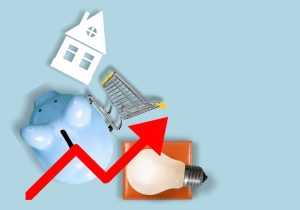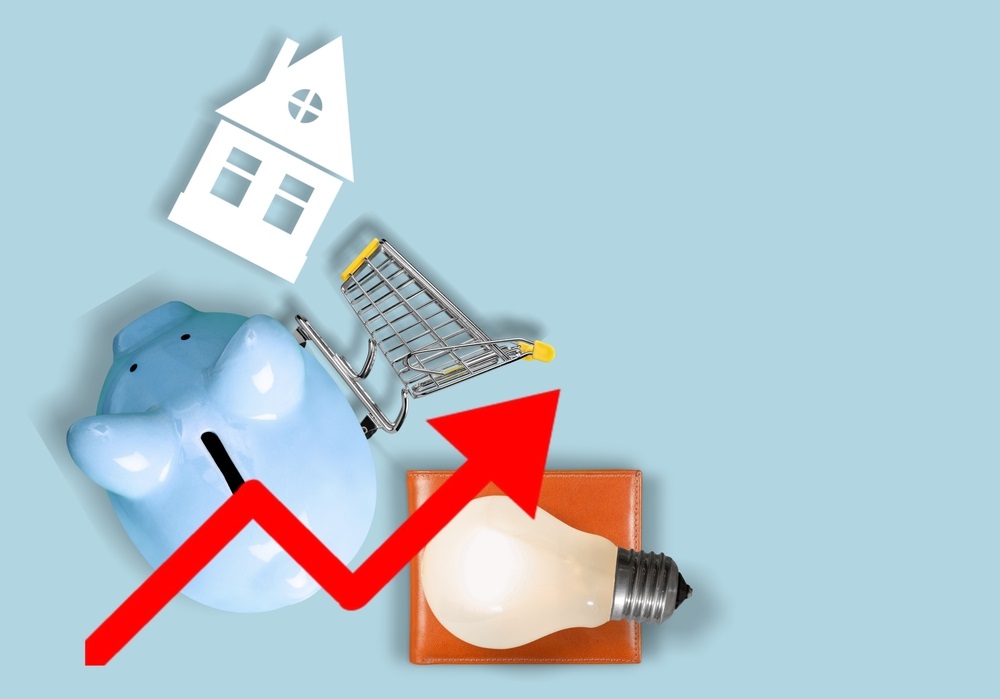Inflation fell to 10.7% in the year to November raising hopes it has now hit the peak and may begin to ease off into 2023.
 The rate of inflation, which measures how high prices of everyday goods and services have climbed over the last 12 months, reached 11.1% in November.
The rate of inflation, which measures how high prices of everyday goods and services have climbed over the last 12 months, reached 11.1% in November.
At 10.7%, it is still double the rate recorded this time last year, and far higher than the Bank of England’s target of 2%.
Alice Haine, personal finance analyst at Bestinvest, said: “This will offer little comfort for consumers whose household finances are still being hammered by rapidly rising interest rates, falling real incomes, a long recession and the highest tax burden since the Second World War.”
What does today’s inflation figure mean for mortgages?
This latest inflation figure was published just a day before the Bank of England (BoE) was due to announce its next interest rate decision. It’s being predicted the decision makers at the central bank will hike the base rate by 0.5% in its continued bid to bring down inflation.
And it also comes as the BoE warns mortgages were going to become ‘considerably more expensive’ for millions of people next year, with average increases of around £250 per month expected for remortgagers.
But whilst mortgage rates soared in October following the fallout from the mini-Budget, fixed rate deals have started to dip again in price – this is despite the Bank of England’s trend for raising rates.
These mixed messages may be confusing for borrowers – so how should homeowners proceed?
Haine offered some clarity. She said: “While interest rates are now expected to peak at a lower than previously feared 4.5% next year, mortgage rates are not likely to jump up significantly as rate increases have already been priced in.
“The average two- and -five-year fixes are now below 6% – down from the highs seen in October when the country was still reeling from the impact of former chancellor Kwasi Kwarteng’s disastrous mini budget.”
She added: “Banks and building societies may even cut the costs of fixed-rate mortgages further, something that could be helped along by a fall in demand as affordability becomes the main issue for first-time buyers and those looking to refinance.
“The higher cost of living has been hurting disposable incomes for some time now – something that will be noted by lenders when they make their affordability assessments.”
What to do if you are worried about your mortgage repayments
If the cost of living increases are putting a strain on your finances and you are worried about whether you can make your repayments, it’s vital you speak to your lender.
They will have processes in place to support you which may include a payment holiday or an alternative method for making repayments.
Karen Noye, mortgage expert at Quilter, said: “A mortgage payment holiday will temporarily suspend your mortgage payments for a set period of time. Keep in mind that interest will still accrue during this time, so you will need to pay it back later.”
She suggested also looking into government scheme and assistance programs such Support for Mortgage Interest (SMI),which provides financial assistance to help cover the interest on your mortgage if you are on a low income.
“You may also want to talk to a mortgage adviser or your lender and explore the possibility of refinancing your mortgage to get a lower interest rate or longer repayment term,” said.
“This can help reduce your monthly payments and make them more manageable. If you are unable to resolve the situation with your lender, you may need to consider other options, such as selling your property but don’t make knee jerk decisions until you have exhausted all your avenues of help.”














